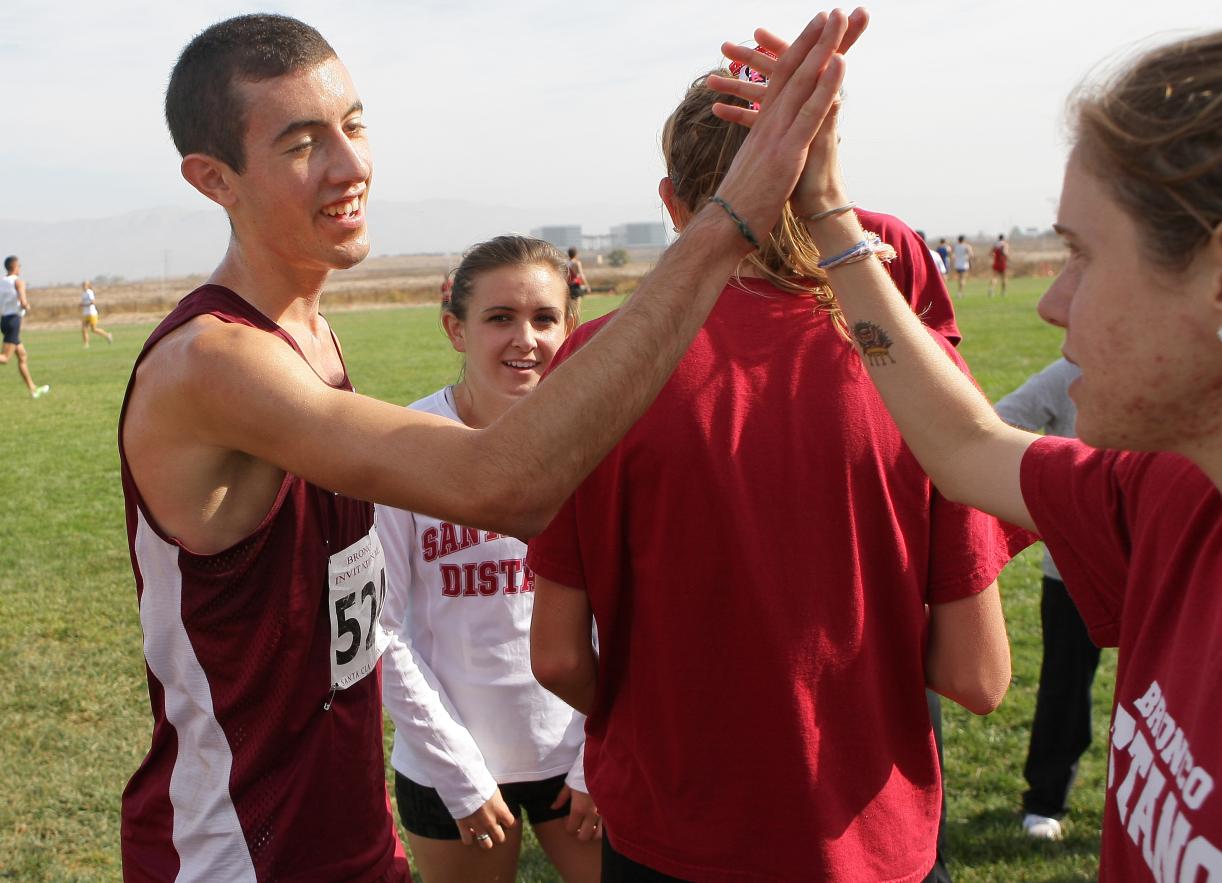Santa Clara, Calif. - One of the Bronco student-athletes to watch in the spring of 2012 is the sophomore track athlete, Ben Demaree. He finished the 2011 cross country season by consistently earning the top two spots on the Bronco team in every race that he participated in. He was named All-WCC after finishing 13th at the WCC Championships in late October. In addition to being one of the top cross country runners last fall, he is also an excellent student. Demaree carries a 3.940 as a Bio-Engineering major; and the men's cross country team posted the highest GPA at 3.55 for the Fall 2011 quarter for the third straight quarter. They also had the highest cumulative GPA at 3.29.
Demaree is now preparing for the up-coming track and field season that begins on March 3 with Kim Duyst Invite at Turlock, Calif. In this interview, Demaree shares the differences in running at high school and college-level competition and what is it like to be a runner.
SCU: Can you describe what kind of off-season training you have been working on since the cross country season?
BD: My main focus has been on mileage and, most importantly, staying healthy. Since I'll be running the 5K and 10K this season - the two longest events on the track - I've put in several 100+ mile weeks to build my aerobic fitness. Of course, my success on the track is also dependent on my health, so stretching, ice bathing and getting ample sleep have been key for me as well.
SCU: What is the major difference in running in high school and then college?
BD: The most obvious difference is the increase in training volume: I've gone from running 60-mile weeks in high school to 100-mile weeks in college. Beyond that, though, I think an even bigger difference is the responsibilities that come with being a D1 athlete and a college student in general. Being away at school means there aren't any parents to tell you when to go to bed, what to eat, or to take care of you when you're sick. For athletes, this independence can be especially tough; it just comes down to being responsible for oneself and finding the right balance between school and sport.
SCU: You attended Portland's Jesuit High School. What are some of the differences in style of coaching when you compare high school coach Rothenbenger and Santa Clara head coach Montoro?
BD: First off, let me just say I wouldn't be the runner I am today without either of these coaches - they've been instrumental in my success as a runner. I think some of the differences in their coaching styles reflect the needs of the two types of athletes they coach: high school and college athletes. Training under Coach Roth was disciplined and highly structured, which I think is appropriate for the beginning runner. Felipe is just as perceptive when it comes to athletes' needs, but he also understands that we've been doing this running thing for years, and so he lets us make independent decisions about some elements of our training.
SCU: Coach Montoro commented that you have run "some of the best marks of any previous recruit here at SCU." What would you like to accomplish as a Bronco student-athlete for the next two years?
BD: Simply put, I would like to continue the success I've had over the previous two years. If I can improve another 30 seconds in the 8K in each of the next two cross country seasons, I'd be a very competitive athlete in the West region and potentially the nation.
SCU: What are your personal and team goals for the 2012 cross country season?
BD: My biggest goal is to help my team make it to the NCAA championships. Individually, I want to run whatever time I need to make that happen, whether it's a huge improvement over last season or not. My team and personal goals are one and the same: when I run better, so does the rest of the team, and vice versa.
SCU: What do you like to do right after training? How do you relax after cross country competition?
BD: I'm pretty particular about my post-workout routine since the effects of poor recovery can compound over a series of days and lead to injury. The first thing I do when I finish a workout is take my recovery drink and then cool down for at least 10 minutes. Following the cool down I do some static stretching and, on most days, I take an ice bath, too. I've noticed a drastic improvement in the way my body feels the next day when I take the right measures to recover. Of course, the best way to relax is sleep!
SCU: What motivates you to continue running when you experience tiredness during the competition?
BD: This is a good question because racing is just as much a psychological activity as it is a physical one. I guess I just try and convince myself that I've got what it takes to keep up a competitive pace and outlast the other guys. Dealing with the type of discomfort experienced when racing is really the best skill a runner can have. We, in the running world, just call it 'toughness'.
SCU: Any comments for the Bronco fans?
BD: Come out and watch some of our meets! They've got the best atmosphere of any sport on the planet.





